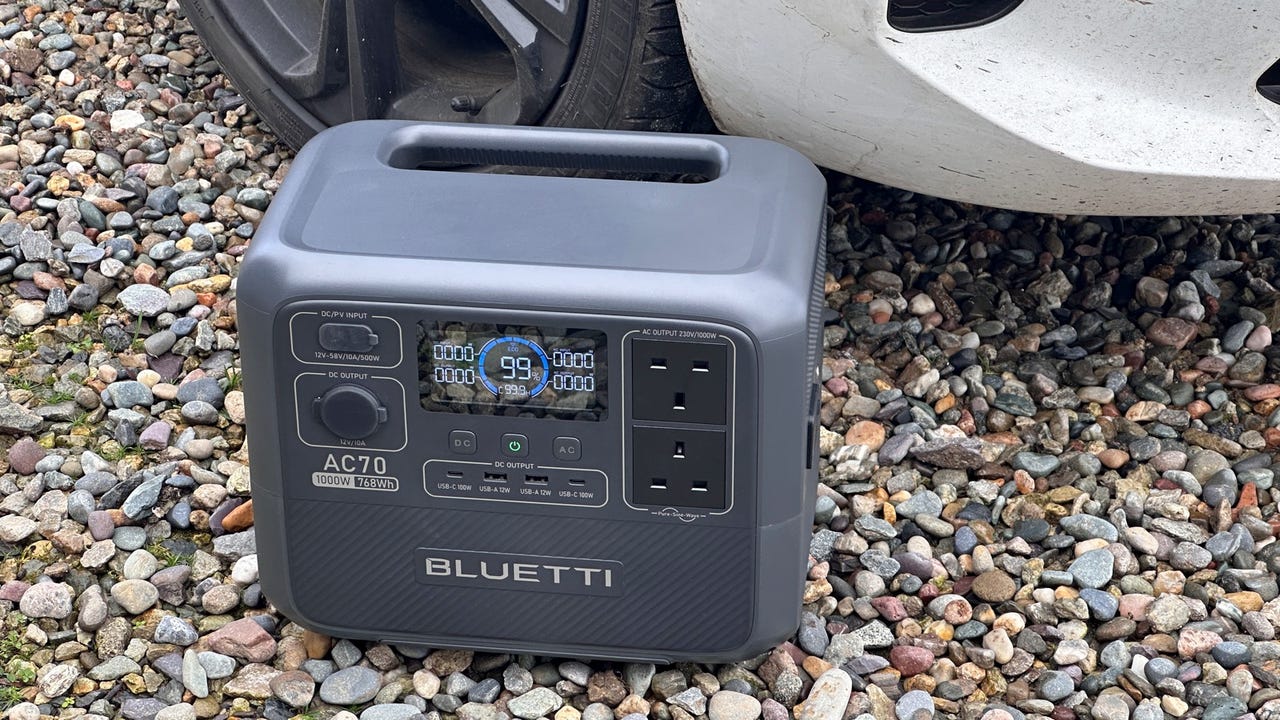
Bluetti AC70 power station.
Adrian Kingsley-Hughes/ZDNET
ZDNET’s Key Takeaways
- The Bluetti AC70 is a portable power station that won’t break your back (or the bank, as it’s on sale for $379).
- It’s a powerful unit, capable of 1,000W output for regular loads, increasing to 2,000W for resistive loads, such as heaters and hair dryers.
- You’ll need the companion app to access more advanced features.
Portable battery packs have revolutionized power. Forget noisy, smelly gasoline generators or trailing extension cables; these packs are a convenient way to carry power on the go.
Also: My everyday Anker power bank has a genius feature that makes it irreplaceable
Power stations come in all shapes and sizes, from small devices that can easily fit into a backpack to large units that must be transported on wheels. I prefer something in the middle — a power station that’s big enough to power heavy loads for extended periods but small enough to be easily carried around.
Over the past few months, I’ve been testing the Bluetti AC70, a portable power station with enough power to easily handle energy-intensive devices, such as hairdryers, electric kettles, and heaters.
Bluetti AC70 Features
- Power: 1,000W Rated Power/2,000W Lifting Power
- Capacity: 768Wh
- AC Charging: 950W Turbo charging, 45 minutes to 80%
- Solar Charging: 500W Fast solar charge, fully charged in two hours
- Outputs: AC: 2×120V/8.33A, 1,000W in total | USB-C: 2 × 100W max | USB-A: 2 × 5VDC/2.4A 12W in total | 12V DC: 1 × 12V/10A
- Battery: LiFePO₄, rated for 3,000+ charge cycles
- App: Smart remote control via BLUETTI app
- UPS reaction time: 20ms
- Weight: About 22.5lbs/10.2kg
- Dimensions: 12.4 × 8.2 × 10.1-inches / 314 × 209.5 × 255.8mm
- Warranty: Five years
When testing a power station for a review, there are a few key aspects I examine.
First, I verify that the device lives up to the claims made on its spec sheet, which, for power stations, includes the battery capacity and the loads the device can handle. I’m also keen to see how the power station copes with loads exceeding its rated capacity, looking for it to shut down gracefully rather than spit, spark, and make a ruckus.


